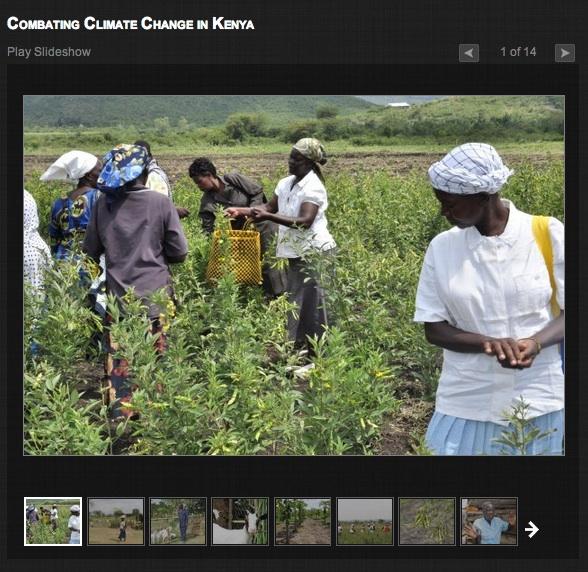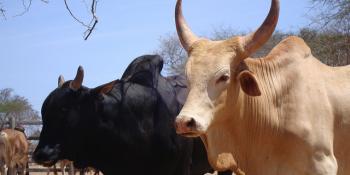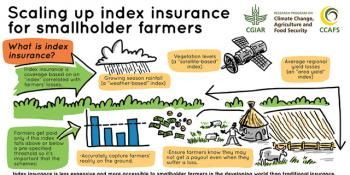Agriculture in focus: climate change planning in Kenya

Kenya held a successful National Adaptation Planning meeting for the Agriculture Sector on the 16 and 17 September 2013. The meeting aimed at building consensus on the priority actions for agriculture proposed in the 2013 – 2017 National Climate Change Action Plan (NCCAP). The idea was for these actions to be fast-tracked for piloting.
During the NAP meeting, the CGIAR Research Program on Climate Change, Agriculture and Food Security CCAFS released a new report focusing on Kenya as part of an upcoming book on East African Agriculture and Climate Change. The report was prepared by the International Food Policy Research Institute (IFPRI) and the Association for Strengthening Agricultural Research in Eastern and Central Africa (ASARECA) with support from CCAFS. The report was accompanied by a Press Release.
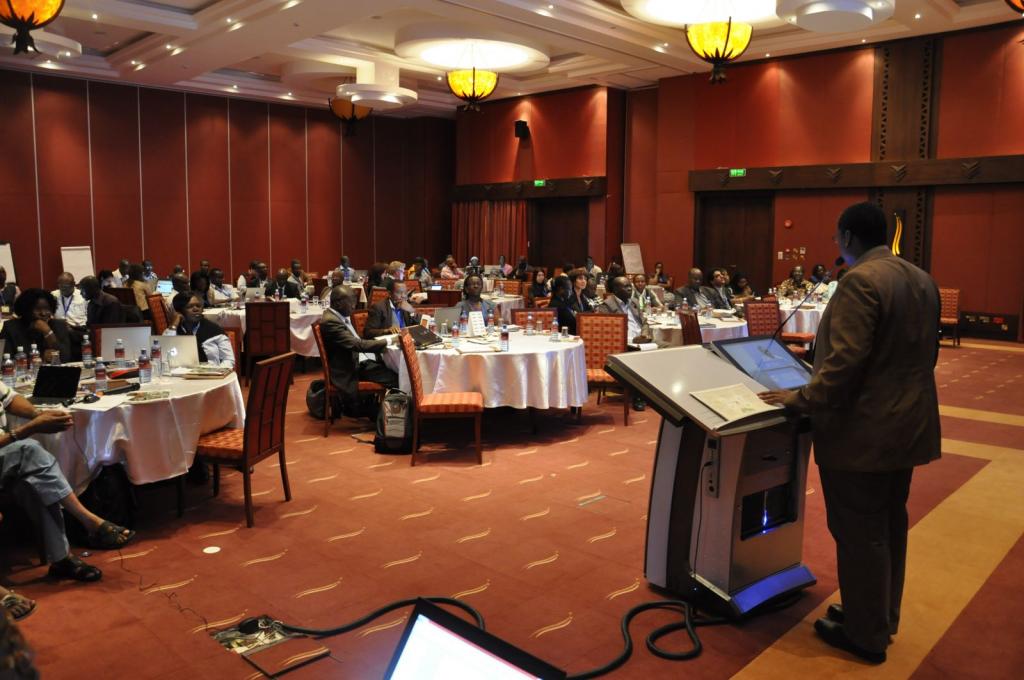
james kinyangi talks ABOUT ONGOING WORK in the climate-smart villages. photo: s. kilungu. view more photos
Prior to the meeting, on 5-6 September, we organized a media visit to the Nyando Climate-Smart Villages to showcase ongoing work and share valuable lessons on a number of climate change adaptation and mitigation interventions. These activities generated significant media coverage by local and international press.
In relation to the NAP meeting, CNBC Africa broadcasted a live interview with James Kinyangi, CCAFS East Africa program leader on the huge pressure ahead of Kenyan productive resources. James emphasized the need to focus efforts on producing food for Kenyans within the country by putting in place relevant policies and supporting smallholder farmers by for instance providing access to micro credit.
The Kenya Television Network (KTN) aired a news piece on why the Rift Valley may no longer be the country's bread basket in the next 37 years. “We need to be prepared for what the conditions will be. It’s about preparedness hence the reason for holding the National Adaptation Planning meeting for Agriculture,” said James Kinyangi to the reporters.
Local newspapers carried out the same message. The Daily Nation reported that experts warn of food crisis due to climate change, which might render some areas unsuitable for agriculture while creating opportunities in others. The Standard Newspaper picked up the report and reinforced the message that Kenya could potentially gain from climate change. The Star Newspaper on the other hand reported that Kitui, Samburu might become Kenya's breadbaskets
Africa Science News and IRIN News Service both reported that climate change will shift Kenya’s breadbaskets. Michael Okoti, a climate change specialist at the Kenya Agricultural Research Institute, a CCAFS partner organization spoke to IRIN and emphasized the need to build farmers’ capacity and ensure that they have access to improved seed varieties.
In the East African, one could read that climate change to see shift in arable land. John Gathenya of Maseno University and Walker Institute for Climate System Research said that farmers need information and the right technological transfers to improve farming and change their farming methods in order to thrive under climate change.
Environmental News Network (ENN) published a report on Optimizing Corn Production in the Face of Climate Change. ENN said “the report, released today, offers tremendous optimism despite the impending climate change, citing a potential to actually thrive if farmers are provided with the right tools”.
Media Visit to Nyando Climate-Smart Villages
The Kenya Broadcasting Corporation aired a news clip on Flood stricken Nyando residents embrace smart villages under the earth watch segment of the broadcast.
All Africa published a photo essay on combating climate change in Kenya, with images from our media site visit. The photos illustrated the activities taking place at the village sites that will hopefully, in the end, boost farmers' ability to adapt to climate in Nyando. Activities include: improved livestock breeds, crop diversification, pigeon peas seed bulking and measurement of greenhouse gas emissions.
From the Xinhua News Agency, the Coast Week reported that scientists set up gas measurement sites in Kenyan villages. Klaus Butterbach-Bahl with the International Livestock Research Institute (ILRI), explained how the aim is to inform policy on GHG emissions as well as build local capacity to handle the problem.The Star carried a story on New centre to monitor greenhouse emissions. The project is necessitated by the fact that the country lacks data on GHG emissions resulting from agricultural activities.
The Coast Week story Community approach to farming yields fruit highlighted the diverse interventions being tested in Nyando and the success achieved so far. According to John Recha, from CCAFS East Africa, the problem witnessed in Nyando was due to lack of innovative ideas and use of traditional farming systems that no longer work in those areas. But now as a result of research by CCAFS and partners, the farmers are already earning more money from keeping improved breeds of goats, sheep and chicken that withstand stress but mature faster, compared to indigenous breeds they have kept for the past three decades.
The Coast week story on Varsities team up to avail farmer's latest climate change information explained a new initiative by CCAFS, Britain's Reading University’s Walker Institute for Climate System Research and Maseno university that will see farmers receive rainfall pattern information at the beginning of every planting season through their cell phones.
The Star highlighted John Obuom, a farmer who is benefitting from the activities on his farm by practicing mixed farming. John keeps improved breeds of goats and sheep and grows diverse crops on his farm. He also practices agroforestry.
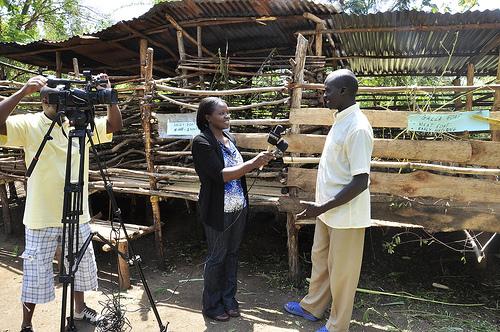
farmer john obuom expains to a journalist how IMPROVED BREEDS OF GOATS AND SHEEP have impacted his life. photo: s. Kilungu.

